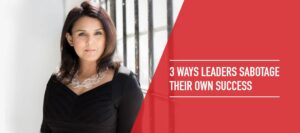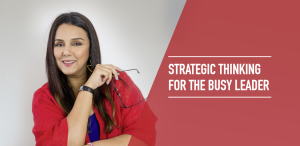

How to cope with change
No doubt you are here because you are either leading change or being asked to implement change or have been bearing the brunt of it. There is no organization in my client list right now that is not experimenting with change at some level. The pandemic has caused unprecedented disruption in the global economy, leading to budget cuts, reassignment of portfolios, and the threat of layoffs. While some are doing a strategy change or revisiting their business models & structure, still others are looking at overhauling their culture to keep up with the demands of our times. No matter what the plan, it leads to stress, overwhelm and a risk for burnout for everyone involved at all levels.
I’m here to provide you with some actionable tips and strategies to upgrade the way you navigate this change that is here to stay.
When faced with stress (and might I say opportunity of) change management programs, here are some frames that you might find useful:
(a) Stay informed as the landscape can shift quickly.
- Stay up-to-date with company announcements and changes to better prepare for what’s to come. It’s easy to disconnect as soon as we start to feel defeated, but a commitment to staying present will keep you in tune with your team and benefit you in the long run. In times of change leaders need to signal their willingness to change along with the plans. Depending on how robust the approach of the leadership team is to change the path ahead, it may look well planned at one end but totally chaotic at the other. Either way, you have to learn to keep up with it, and it’s likely you will need to help your team keep up with it as well. Mostly I find there is an ‘internal logic’ to these changes but top leadership teams may not have adequately crafted a narrative or storyline that provides the red thread for people to grasp and follow along. All my clients who spend time with me thinking & crafting the storyline of change see it as a powerful investment in building and sustaining the momentum of change but this is often not the case in other companies. Therefore:
“Asking questions and raising issues at the right time with the right person becomes key.”
- Hot tip: your tone of asking for clarification is key. Sometimes, even best framed questions can be seen as pushback or dissent in a highly charged change management scenario. Chances are your colleagues are as stressed as you are so be mindful of the tone, the words and the intentionality being reflective of your intent to help facilitate the change. Amy Edmondson in a Harvard Business Review article suggests 2 great questions: “This is what I’m hearing—did I miss anything?” or “Can you help me fill in the gaps?” or “I think what you said means the project is on track. Is that correct?”
- Create an environment of inclusivity where everyone feels heard and valued. Chances are others are feeling overhelmed as well. By creating a community of people who act as sounding boards to each other, you are also signaling your leadership capability in times of change. Encourage transparency by sharing information and insights across teams. And check out my newsletter on feedback for some tips on positive reinforcement!
(b) Link the company change management plans to your own personal change management plans.
Though change can be stressful, try to see this as an opportunity to reassess your career goals. and take proactive steps toward professional development. For example, if there are areas where you want to improve your skills or knowledge, seek out training opportunities. Commit to being a lifelong learner. Embrace the change and find opportunities for growth!
Learn how to be resourceful and creative in finding solutions to problems. This could involve thinking outside the box, looking for unconventional solutions, or collaborating with others. When role or portfolio changes happen it can be both un-nerving and frustrating but keeping a growth mindset and keeping your own north star or purpose in view can provide you with the fuel needed to keep going till things settle down.
I advice my coaching clients to quickly create a learning and action map around what they need to ‘forget’, what they need to ‘learn’ and what they need to ‘bring along’ from the previous version of their role/portfolio. An intentional approach to your learning also helps you cope with the landscape better and shines a light on the gaps in your own skillset/competencies.
(c) Notice systems of care all around you:
Let’s face it, demands on your mental, emotional and coping capabilities are high during any change. And it is also true that you are likely to pay least attention to refueling yourself while you are navigating the changes. But it does not have to be a long and complicated affair to replenish yourself. Simple acts such as going for a walk, a soothing screensaver, an inspiring quote, or listening to the sounds of animals, or the breeze in a meditation app can quickly reset our nervous systems. Eat delicious food and think of the people who grew it or made it. Take care of yourself by getting enough sleep, exercise, and nutrition. Set aside time for relaxation and hobbies that bring you joy. Seek support. Reach out to colleagues, friends, or family members for emotional support. You can also seek out professional counseling or coaching if needed. Here are three types of rest you need beyond physical rest to be able to have the mental and emotional resources to carry on. Particularly if you have had to be the leader/face of the change. Do not under estimate the demands of this role.
Yes, all of this change, particularly during the impending warning of a recession, can be stressful and challenging. However, by taking a proactive approach, you take back your power. As VIctor Franknel said – the ultimate freedom available to a human being is the ability to choose your response to a situation. Feel free to share this with your teams, your colleagues, and friends who may be going through changes in their company. Thank you so much for reading.
Looking for a keynote speaker to upgrade your people? An executive coach to help your leaders transition to their next level of presence, power and performance? You can drop me a message here.
Check out my YouTube and Twitter.

Take this short quiz to find out if your career is a sinking ship?
Subscribe our newsletter to upgrade your leadership, life and career
Leaders upgraded podcast
The top names in leadership share their insights and advice for you










